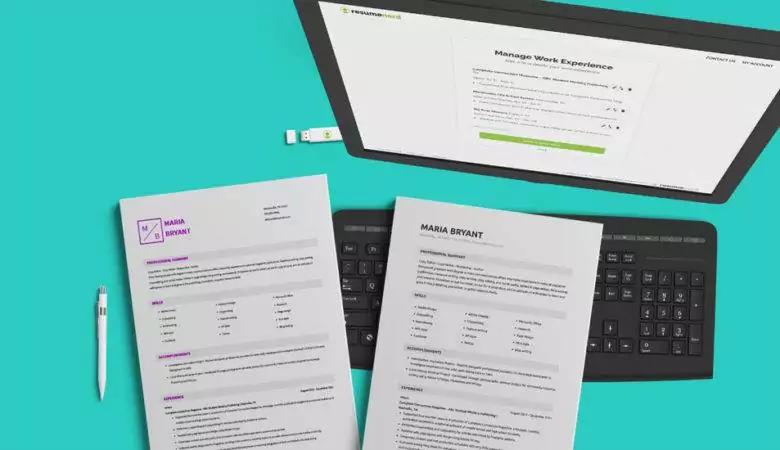Learn how to use keywords in your job search to get your resume to the top of the pile with ResumeNerd’s top keyword tips.

Learn the Best Ways to Use Keywords in Your Resume With Tips
How To Use Resume Keywords To Get a New Job
Understanding how keywords work is crucial to successful resume writing. Using keywords in your resume and cover letter will help enhance your web presence, help you pass applicant tracking systems (ATS), and get the attention of the hiring manager or recruiters. If you are in an industry that works with keywords, for example SEO or marketing, then using the right keywords on your resume can be even more important. Hiring managers and recruiters will want to see that you understand how to apply the skills you have learned in order to do the job. Here are our top three tips on how to use the right keywords and power words to get any job faster:
Tip #1: Use keywords to easily tailor your resume to each new job you apply for.
Using keywords can make it easier to tailor your resume to a specific job. Every job title will have its own specific requirements and skills – these are the keywords you will use in your own resume. (It can be helpful to use a highlighter when going over the job description.) Make a note of the keywords used in order to incorporate them into your resume. For example, if “Adobe Photoshop” is listed as a required skill in the job description, you should list it in your resume skills section, or feature a work experience in which you used Adobe Photoshop. If you have trouble tailoring your resume based on keywords, use a resume builder to assist you in creating the proper resume format and filling it in.
Tip #2: To pick out the right keywords to use, look for action verbs.
If you’re having trouble picking the keywords out of the job posting, then try looking for action verbs, which are often linked to key job skills and requirements. Action verbs are dynamic words such as manage, schedule develop. For example:
Establishes and maintains office files, following an established filing system; researches and compiles information from such files; purges files as required.
The action words establishes and maintains are linked to important tasks (office file management), while the action words researches and compiles can be thought of as a skill by themselves (research and data management).
Tip #3: Keep your skills section to 5-10 relevant skills.
The skills section is one where job seekers tend to overstuff keywords. Because skills are usually listed with bullet points, it’s all too easy to add in every skill you can think of or all the buzzwords that are listed in the job posting. Avoid making this mistake by sticking to the five to ten most relevant skills. Use a mix of soft skills and hard skills to give a well-rounded impression.
In the same vein, keep your work experience section to the top two to three tasks and achievements for each previous job. Use action words and keywords in your work experience.
FAQ: Resume Keywords
Yes, using keywords from the job posting can make a big difference in how your resume is perceived by the hiring manager. Recruiters are often busy and receive numerous applications for the same job. When they are quickly scanning resumes, keywords that mirror keywords from the job description will stand out to them. Using keywords will aYes, using keywords from the job posting can make a big difference in how your resume is perceived by the hiring manager. Recruiters are often busy and receive numerous applications for the same job. When they are quickly scanning resumes, keywords that mirror keywords from the job description will stand out to them. Using keywords will also help your resume make it through ATS so that the hiring manager will actually read it.
Also help your resume make it through ATS so that the hiring manager will actually read it.
Focus on your skills, competencies, and action words that describe them. There will be different power words depending on the specific job you’re applying for. However, you don’t need a list of keywords. You can simply check the job ad or job posting and find the most important keywords right in the job description. You can use the same keywords in your resume in addition to synonyms.
Just like with SEO for a website, you don’t want to over-do on keywords in your resume. There is no exact number of keywords you should use, but you shouldn’t include them randomly or all in one sentence. Place them strategically throughout your resume and cover letter. Proofread your resume and make sure that it makes sense when you read it through. When using keywords and phrases from the job posting, be careful not to replicate entire sentences. If your resume looks like you just copied and pasted the job description into it, this will work against you even if it does contain keywords.








